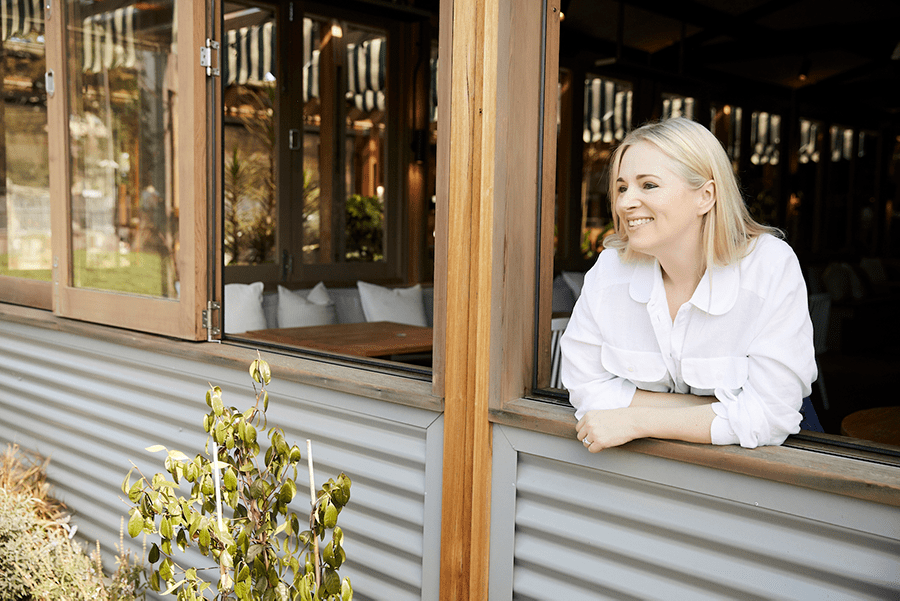
By Joanne Gambale
Leading the charge in the world’s current fashion revolution is journalist, author and presenter Clare Press. Now the Sydney-based Brit’s passion-fuelled campaign is about to ascend into a new platform: film.
Clare has received development funding for a documentary series about sustainable fashion. While it’s too early to share details, except that she’s working with an all-female team, her trajectory is clear, and as a friend and former colleague, I find I am not in the least surprised.
An avid reader with the curiosity of an old-school journo, Clare was always ambitious and political but was driven by her sartorial interests. She went against the designer-label norm during her stints at Vogue and Marie Claire, dressing head to toe in flea-market vintage, and she even briefly ran a label of her own (vintage inspired of course).
Her witty way with words delighted readers of her many fashion columns, and made palatable the heavy subject of her bestselling non-fiction Wardrobe Crisis (2016).
Now a podcast, Wardrobe Crisis raises awareness about ethical and sustainable fashion and has enabled Clare’s evolution into presenting across TV, radio and at live events.
Your book Wardrobe Crisis begins with you realising the rail in your wardrobe had snapped in half but the clothes remained suspended by their collective mass.
Sounds absurd (and it probably is!) but it did happen. It’s also a metaphor for our collective wardrobe crisis – we have too many clothes. I still have way too many clothes. I make the excuse that they’re mostly second-hand. I was collecting vintage before I got into sustainability – I didn’t want to look like everyone else so I shopped at flea markets.
And is that when it all began?
No, actually it was the collapse of Rana Plaza. I had a lightbulb moment, and did a lot of research afterwards. I joined Fashion Revolution, which had just begun (Australia was the second country to set it up after the UK), and started to write more about the subject.
At that time sustainable fashion was not mainstream but I think it’s changed completely in the last couple of years. There used to be a few designers who led with integrity wherever their passion lay – Stella McCartney on her cruelty-free mission, or Eileen Fisher, who has been talking about sustainability and ethics for years, but I don’t think your average fashion fan was looking for sustainable fashion on the high street. There was very little coverage of it, and it wasn’t seen as desirable.
Did you expect Wardrobe Crisis to do so well?
In fairness it wasn’t instantly super popular – it built over time. It came out in America in 2018, and is now a podcast.
I think that interest in the book built with interest in the area. And now there are lots of amazing books about sustainable fashion out there. I would also shout out to Elizabeth Cline, who wrote Overdressed in 2012, and Lucy Siegle for To Die For (2011).
You seemed to evolve beyond fashion for your next book, Rise & Resist (2018)?
Everyone expected me to write another book about fashion, but you can’t repeat yourself.
Writers are driven by curiosity, and the more you learn the more you want to move into different worlds. The new book is a logical progression from doing lots of research into the environmental impacts of the fashion industry… from there I became interested in climate action.
Rise & Resist is about activism, how we build movements, and how we can live more lightly on the planet. That definitely also touches on fashion, which is still my first love.
Your podcast is essentially about fashion but it does touch on more wide ranging aspects of sustainability?
Yeah it’s really sneaky! It’s often hardly about clothes at all. My idea was to bring people into conversations by way of fashion so it’s kind of a Trojan Horse thing.
If I can attract you with the glamour of fashion, clothes and designers and then leave you with info that you didn’t know you needed about plastic pollution or biodiversity loss then I’ve done a good job.
I read a stat that 73% of millennials say they would be happy to pay more to shop sustainably, and you see so much in the way of online second-hand retailing among that generation…
I don’t think most people who shop second-hand do it for sustainability – I think they do it because digital platforms have made it more accessible, because it’s cheaper and it’s fun.
But yes, definitely attitudes are changing and more people are becoming aware and, as you read, more people are willing to pay the true cost of a garment. However, I also think there can be a disconnect between what people say they do and what they actually do.
You’ve always been a writer and now presenting takes up most of your time. Is the podcast your new number-one passion?
I would say that yes, but writers are storytellers and it doesn’t matter what medium you choose.
So what’s next?
Filmmaking. My project has been selected for development funding. I’m working with a female director and a female producer. I’m also working on another new project – a podcast for the UN’s Ethical Fashion Initiative. I’m producing, and I’m the co-presenter with Simone Cipriani.
When you started out in fashion journalism, did you see yourself one day presenting in front of a camera?
Not at all, it just evolved. If you want to change minds within your industry you can’t do that by being quiet and so I had to force myself to learn to be a public speaker.
So you think writing isn’t as effective?
Writing is very powerful! Books have changed my life many times over. But you have to go where the audience is.
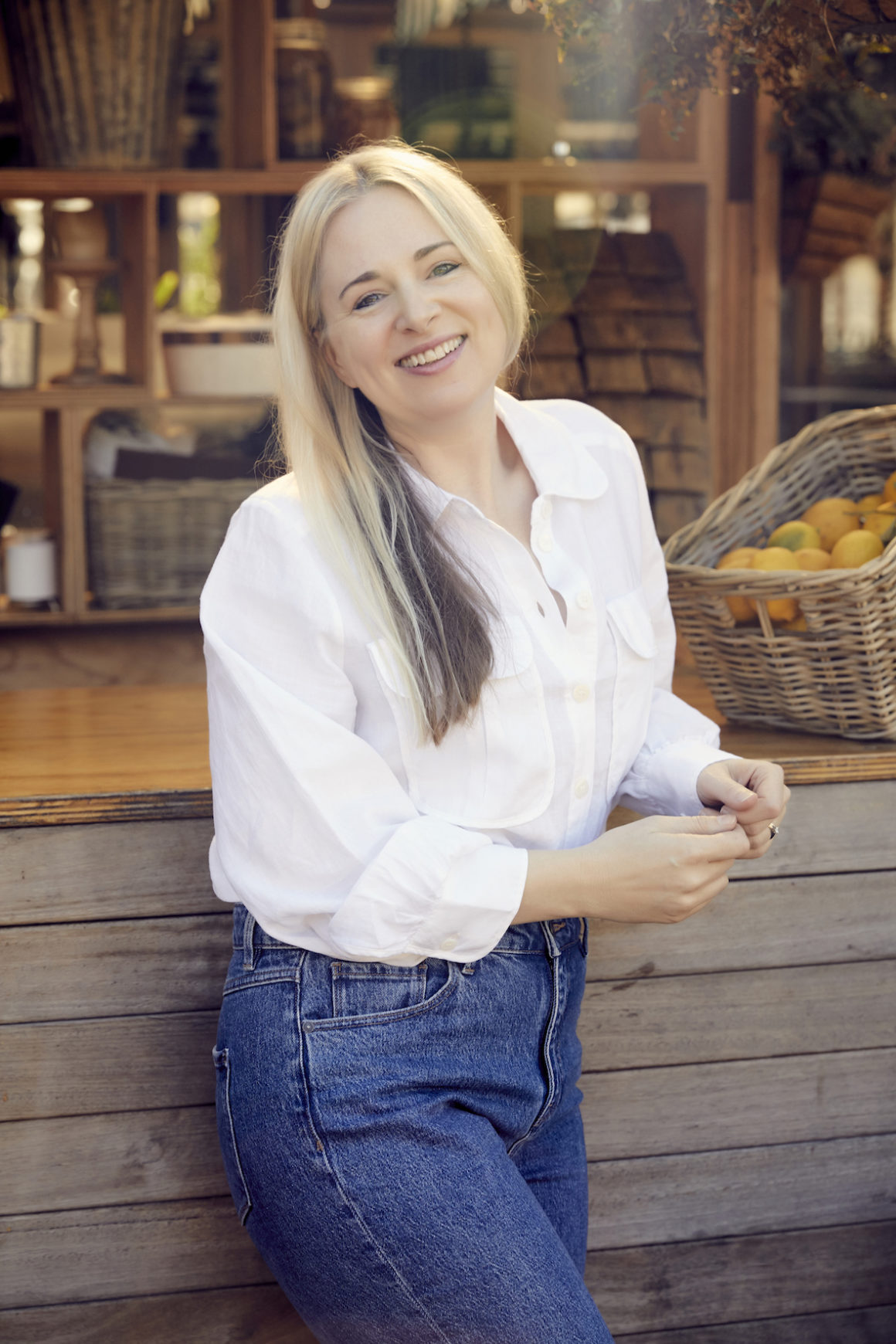
Going forward is it more a matter of government regulation or consumer behaviour?
I think we have to be really careful of putting the onus too much on the consumer to drive all change. Mary Creagh, chair of the UK’s Environmental Audit Committee, once said fashion brands are currently “marking their own homework”. Of course we need regulation.
So what can consumers do?
Ocean plastics campaigner Emily Penn has just been on the podcast. She talks about how we, as consumers, need to metaphorically ‘turn off the tap’ of plastic pollution.
We do need to stop buying stuff covered in plastic packaging. STOP IT!
I know I said before that I don’t want to put the onus on consumers to totally change the system, but we do have agency. We can choose not to use a takeaway cup…
How do you manage when faced with such frustrations?
I think the hard line to walk is to have compassion for people’s different personal journeys and experiences while maintaining the rage that drives change. I’ve been trying to work on compassion – that’s the hard part.
And why they are restricted in making change, while I am in a privileged position to be able to focus on it all the time.
Do you ever get to the point where you want to break down and cry? It’s all just too overwhelming?
I mostly feel energised by all the people and projects out there making change, but I do have my moments of panic; I think we all do. The [Australian] fires made me cry. Coronavirus is very worrying. Loss of biodiversity freaks me out.
Do you think many people just don’t know where to start?
Environmental overwhelm is real but what we do as individuals matters.
We can lead by example, and others will follow by changing their habits, even just the small things like, ‘Oh they’ve got paper straws, so we should too’.
We can build momentum with small steps.

THREE FAVOURITE SUSTAINABLE LABELS
Outland Denim, Stella McCartney & Veja
OR ….
THREE FAVOURITE THINGS
- Libraries – “I think that we underuse libraries. In New South Wales you can get any book on their database delivered to your local branch. And it’s free. Libraries change the world… yet all over the world, we’re in danger of losing them if people don’t use them! I think we forget they’re so full of wonder. The internet is fine, but books will never lose their power for me.”
- Reusable water bottles, bags, cups etc.
- Bulk food stores
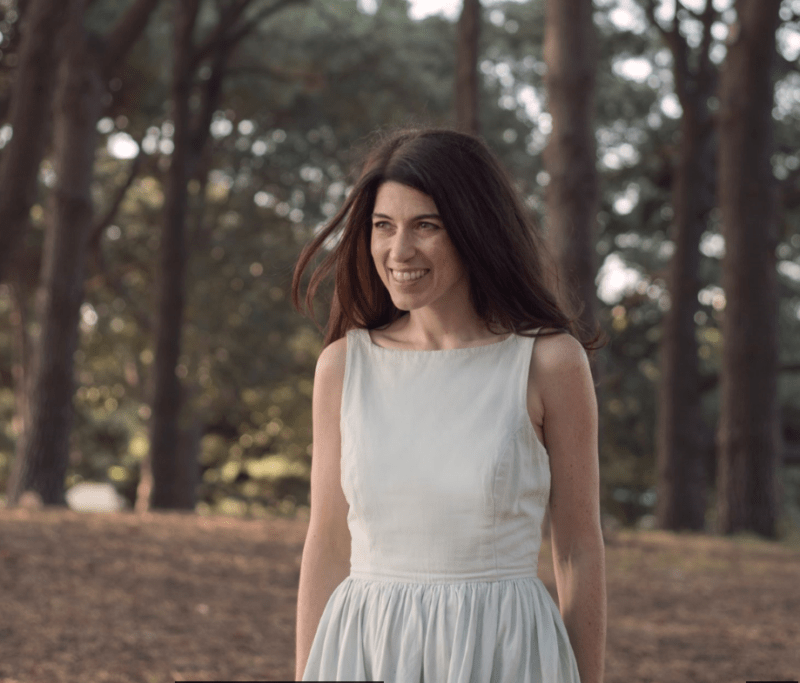
Joanne Gambale
Joanne is a long-time Vogue writer and now sustainable wardrobe stylist based in Sydney. Her focus is on helping women and men find their style and inner confidence through vintage and second-hand fashion. Her service is available to anyone (anywhere) with ‘Whatsapp and a wardrobe’ and she’s currently offering 50% off her hourly rate on all consultations and personal shopping services. Follow her blog and Instagram @joannegambale
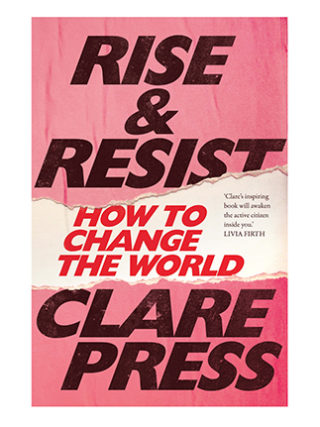
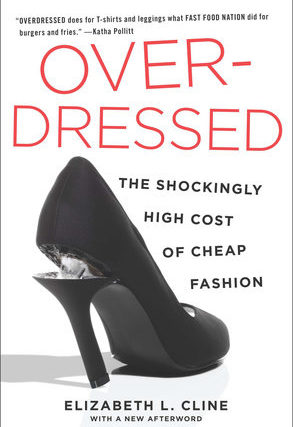


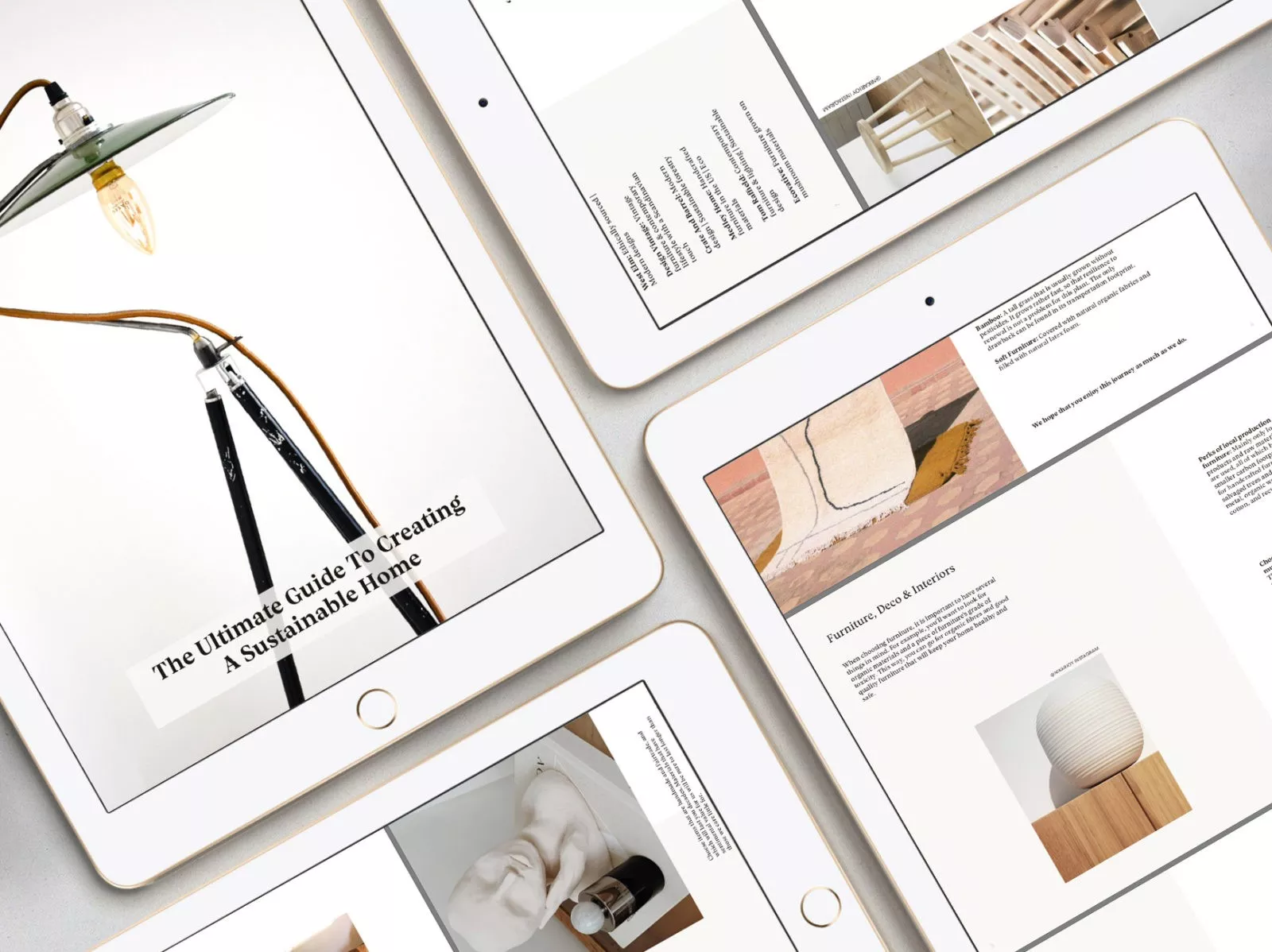






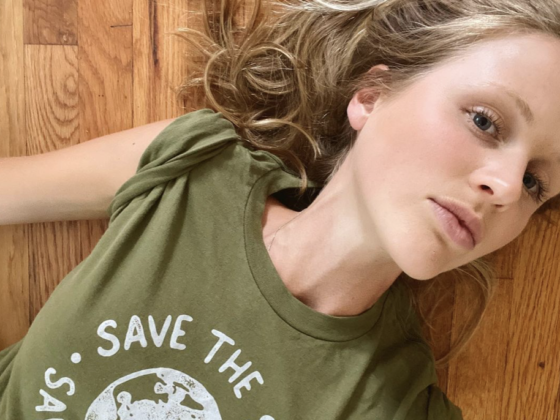
1 comment